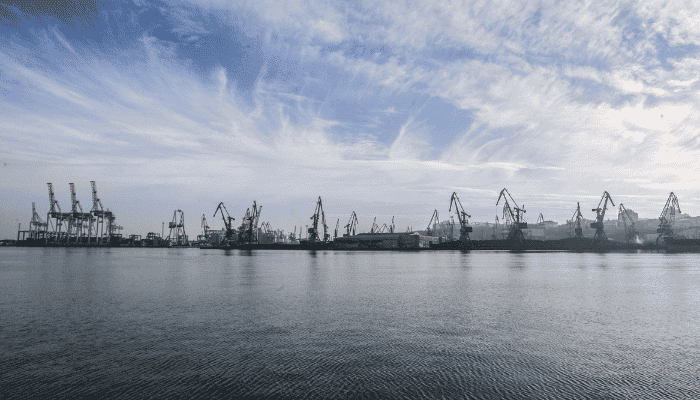According to British intelligence, there were “no indications” that a Ukrainian warship was present in Odesa when Russian missiles reportedly hit the Ukrainian port city.
The Kremlin claimed it was able to destroy a warship along with a stock of anti-ship missiles on Sunday.
Russia will continue prioritizing efforts to destroy and degrade Ukrainian anti-ship capabilities. However, Russia’s targeting tactics are likely routinely undermined by dated intelligence, improper planning, and a top-down approach to its operations, the Ministry of Defense mentioned in its intelligence update.
Ukraine’s military reportedly said two Kalibr missiles were fired from Russia’s warships. They hit the pumping station area, and the air defense forces shot down two others.
It raised concerns if Russia would stick to a deal to permit Ukraine to export grain seamlessly, a move that would help ease the global food crises.
The UN reported that the first vessels might depart from Ukraine in days despite Russia’s missile attack that happened over the weekend.
Per a spokesman associated with the military administration in Odesa, on Tuesday morning, yet another missile was fired from the direction of the Black Sea.
East of the city off the coast, port infrastructure at Mykolaiv was reportedly impaired following an attack, per the mayor.
Again, a fire raged at an oil depot based in the Budyonnovsky district of Eastern Ukraine’s Russian-backed Donetsk People’s Republic. This happened after troops of Ukraine shelled the province, TASS reported.
No injuries or casualties were reported.
Sergei Lavrov, Russia’s foreign minister, mentioned that Moscow’s overarching aim in Ukraine was to free the people from an “unacceptable regime,” expressing Russia’s goals in the starkest term so far.
Moscow, in the meantime, has mentioned that from Wednesday, it will cut gas supplies to European countries.
The EU nations are prepared to approve a weakened emergency proposal on Tuesday to curb gas demands as they try weaning themselves off Russia’s energy.
Gazprom, a Russian energy giant, cited instructions from an industry watchdog and reported that gas flows to Germany via the Nord Stream 1 pipeline would drop to 33 million cubic meters daily from Wednesday.
The figure denotes half the current flows, already 40% of the usual capacity. Before the war, Europe imported nearly 40% of its gas and about 30% of its oil from Russia.
The Kremlin has to say that the gas disruption is due to maintenance issues and current Western sanctions. However, the EU has blamed Russia for alleged energy blackmail.
Politicians have continuously warned Russia could cut off the gas in the coming winter, a move that will likely push Germany into a recession and further hurt consumers wounded by the soaring inflation.
References: Republic World, Yahoo Finance






